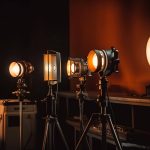Capturing portraits is an art that requires not only a skilled photographer but also the right tools to bring out the depth and emotion of the subject. In the realm of portrait photography, few factors play as crucial a role as the choice of lenses. Among the array of options, Canon, a prominent name in the world of photography, offers a range of lenses that cater specifically to the nuances of portraiture.
These lenses are designed to frame subjects with exceptional clarity, create stunning background bokeh, and capture the subtlest of expressions. In this exploration, we delve into the realm of portrait photography and unveil some of the best Canon lenses renowned for their ability to transform moments into timeless visual stories. Whether you’re a seasoned professional or an aspiring photographer, finding the perfect lens can make all the difference in crafting portraits that resonate with depth and allure
Table of Contents
ToggleBest Canon Lens For Portraits Photography
Here are reviews of 10 Canon lenses that are commonly used for portrait photography, along with their pros and cons
1. Canon EF 50mm f/1.8 STM
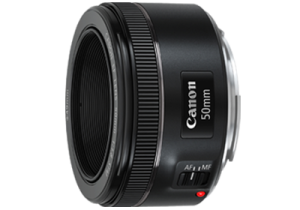
The Canon EF 50mm f/1.8 STM, often referred to as the “nifty fifty,” is a fantastic entry-level lens for portrait photographers. Its wide aperture allows for beautiful background blur, making subjects stand out. While it has a plastic build, its affordability and image quality are impressive.
*Pros*: Affordable, lightweight, excellent low-light performance, sharp images.
*Cons*: Plastic build, noisy autofocus.
2. Canon EF 85mm f/1.8 USM:
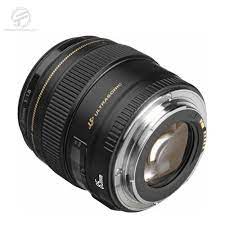
The Canon EF 85mm f/1.8 USM is a popular choice among portrait photographers due to its flattering focal length and wide aperture. It produces creamy bokeh and sharp images, making it ideal for headshots and portraits with pleasing subject isolation.
*Pros*: Creamy bokeh, sharpness, great for headshots, reasonable price.
*Cons*: Slightly heavy, lacks image stabilization.
3. Canon EF 50mm f/1.2L USM:
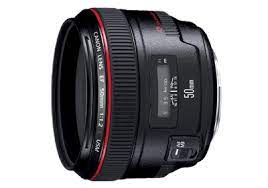
For those seeking top-tier image quality and a wider aperture, the Canon EF 50mm f/1.2L USM is a premium option. While it comes at a higher price point, its exceptional sharpness, build quality, and ability to achieve a shallow depth of field make it a favourite among professionals
*Pros*: Outstanding sharpness, superior build quality, beautiful bokeh.
*Cons*: Expensive, heavy, some chromatic aberration.
4. Canon EF 24-70mm f/2.8L II USM:
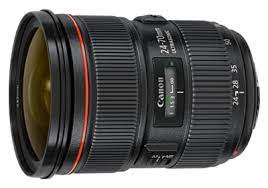
If versatility is key, the Canon EF 24-70mm f/2.8L II USM covers a useful range for portraits. While it’s a zoom lens, its image quality rivals many primes. The lens’s L-series build ensures durability, and its wide aperture enables pleasing background separation.
*Pros*: Professional-grade build, sharpness throughout the zoom range, weather-sealed.
*Cons*: Bulky, heavy, relatively high price.
5. Canon EF 135mm f/2L USM:
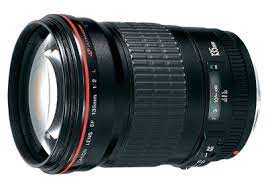
The Canon EF 135mm f/2L USM is a superb prime lens for portraits. Its longer focal length provides excellent compression and subject-background separation. The wide f/2 aperture allows for stunning bokeh, and the lens is renowned for its exceptional sharpness.
*Pros*: Superb bokeh, exceptional sharpness, great for outdoor portraits.
*Cons*: Larger and heavier than some other options, no image stabilization.
6. Canon EF 70-200mm f/2.8L IS III USM:
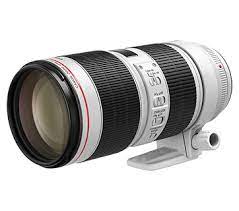
Combining a classic focal length with modern features, the Canon EF 85mm f/1.4L IS USM offers image stabilization along with a fast aperture. This lens delivers sharpness and beautiful bokeh, making it suitable for both indoor and outdoor portrait photography.
*Pros*: Excellent sharpness, effective image stabilization, versatile focal range.
*Cons*: Expensive, bulky, heavy.
7. Canon RF 50mm f/1.2L USM:
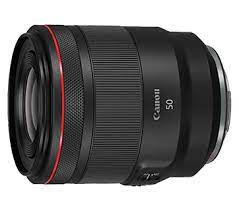
Designed for Canon’s mirrorless RF mount, the Canon RF 50mm f/1.2L USM offers outstanding optical performance. It boasts impressive sharpness, low-light capabilities, and a wide aperture for creative depth-of-field control.
*Pros*: Incredible sharpness, wide aperture, excellent build quality.
*Cons*: Expensive, relatively heavy, limited compatibility with older Canon bodies.
8. Canon RF 85mm f/1.2L USM:
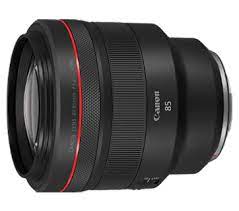
The Canon RF 85mm f/1.2L USM is a high-end portrait lens for Canon’s mirrorless cameras. It delivers stunning image quality, remarkable sharpness, and creamy bokeh. This lens is a favourite among portrait professionals who demand the best.
*Pros*: Stunning bokeh, exceptional sharpness, advanced optics.
*Cons*: Pricey, heavy, larger size.
9. Canon EF 100mm f/2.8L Macro IS USM:
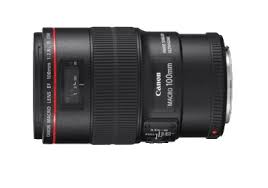
While primarily a macro lens, the Canon EF 100mm f/2.8L Macro IS USM doubles as an excellent portrait lens. Its longer focal length and image stabilization make it versatile for various shooting situations. The lens’s macro capabilities offer unique creative opportunities
*Pros*: Sharpness, hybrid image stabilization, macro capability.
*Cons*: Slightly slower aperture, not as compact.
10. Canon RF 85mm f/1.4L IS USM:
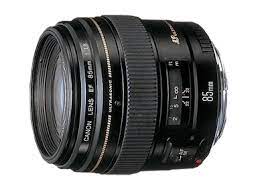
The Canon RF 85mm f/1.4L IS USM is a premium portrait lens for Canon’s mirrorless system. With a fast aperture and image stabilization, it provides exceptional low-light performance and the ability to capture sharp, detailed portraits even in challenging conditions
*Pros*: Excellent sharpness, image stabilization, fast aperture.
*Cons*: Pricey, relatively heavy, limited to Canon RF mount cameras.
FAQ about Best Canon Lens For Portraits Photography
Certainly, here’s a list of frequently asked questions (FAQ) about the best Canon lenses for portrait photography
1. What are the key factors to consider when choosing a Canon lens for portrait photography?
- Focal Length: Opt for lenses in the range of 50mm to 135mm for flattering perspectives.
- Aperture: Wider apertures (e.g., f/1.2 to f/2.8) provide better background blur and subject isolation.
- Image Quality: Look for sharpness, minimal distortion, and good color rendition.
- Build Quality: Consider durability, weather-sealing, and overall construction.
2. Why are prime lenses often recommended for portrait photography?
Prime lenses have a fixed focal length and often wider apertures, resulting in sharper images and better low-light performance. They also encourage photographers to move and compose creatively.
3. What’s the advantage of a wide aperture in portrait lenses?
Wide apertures (e.g., f/1.2 to f/2.8) create a shallow depth of field, allowing you to blur the background and focus attention on your subject. This produces a pleasing bokeh effect.
4. Can zoom lenses be used effectively for portrait photography?
Yes, certain zoom lenses offer excellent image quality and versatility for portraits. The Canon EF 24-70mm f/2.8L II USM, for instance, is renowned for its quality across its focal range.
5. Which Canon lens is suitable for headshots and tight portraits?
Lenses like the Canon EF 85mm f/1.8 USM or Canon EF 85mm f/1.4L IS USM are ideal due to their flattering compression and ability to isolate subjects.
6. What’s the significance of image stabilization in portrait lenses?
Image stabilization (IS) helps to reduce camera shake, enabling sharper handheld shots, especially in lower light conditions or when using slower shutter speeds.
Finally
In the realm of portrait photography, the lens you select serves as the bridge between the tangible world and your creative vision. Each click of the shutter captures not only the subject but the emotions, stories, and connections that define the human experience. The journey to find the best Canon lens for portrait photography is a voyage of discovery, a quest to distill the essence of a moment into a single frame.
As you delve into the world of lenses, consider the interplay between technical specifications and artistic intention. The focal length, aperture, and build quality are not just features but tools that empower you to shape your narratives. From the intimacy of a close-up shot to the grandeur of a well-composed scene, your lens choice becomes the conductor of your visual symphony.
Through the lens, you paint with light and shadow, blur and focus. You transform backgrounds into ethereal canvases that make subjects stand out, capturing their uniqueness and emotions. It’s not just about the glass; it’s about the stories you unfold, the characters you immortalize, and the memories you preserve.



